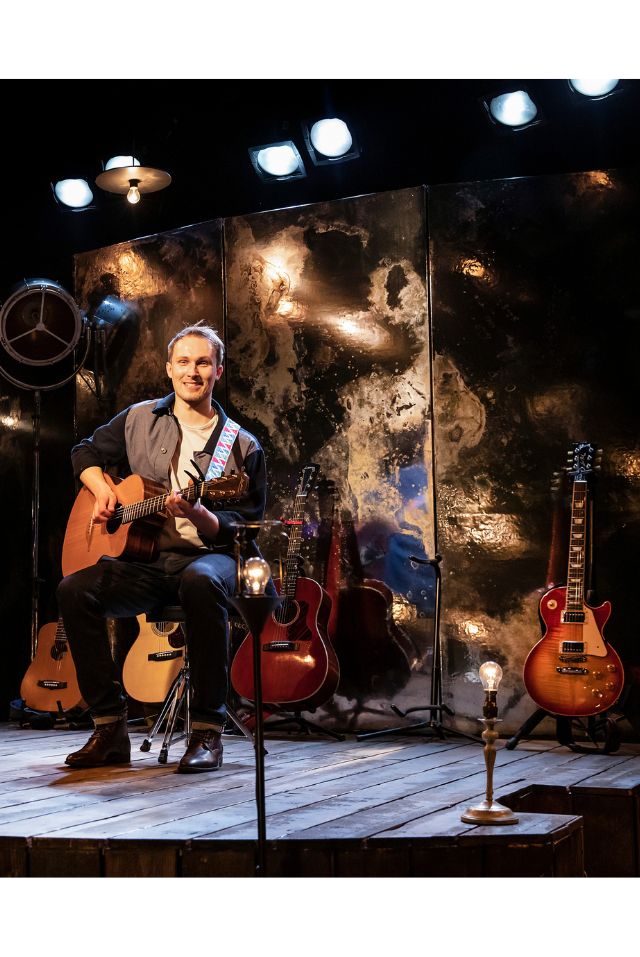
About the Play: The Lion
Traditional music theater scores are said to need a good old fashioned “I want” song – remember “Wouldn’t it be Loverly” from My Fair Lady:
All I want is a room somewhere
Far away from the cold night air
With one enormous chair
Oh, wouldn’t it be loverly?
Or maybe you are more familiar with “If I Were a Rich Man” from Fiddler on the Roof:
I’d build a big, tall house with rooms by the dozen
Right in the middle of the town
A fine tin roof with real wooden floors below
There would be one long staircase just going up
And one even longer coming down
And one more leading nowhere, just for show
Finally, Walt Disney gave us Snow White and her “I’m Wishing”:
I’m wishing
(I’m wishing)
For the one I love
To find me
(To find me)
Today
These are all wonderful examples; historic, for sure and classic. But maybe what is needed in the midst of a slightly more … nuanced … world is something akin to what Benjamin Scheuer gives us in The Lion. Scheuer tells us “Ben’s” wish in the third line, “There is nothing I want more than to play like him.” The “him” in question is his father, who, “in another life would have been a musician.” Young Ben, age eleven, adores his father, especially when they are making music together. But, like so many other stories of fathers and sons, these wants and adorations change, and sometimes disappear. And so when Ben’s father gets angry and walks away from him after a bad report card when he is fourteen, Ben’s want changes: he doesn’t want to be like his father anymore.
Unlike Eliza Doolittle, Tevye, or Snow White, who only have one opportunity to articulate their desires, Ben articulates his evolving wants throughout The Lion. He wants to be a better communicator, he wants to make noise, he wants to disappear, he wants to go away, and, ultimately, he wants “this thing” to go away.
We won’t give away the plot details – or reveal what “this thing” is, but the want at the heart of Scheur’s play is timeless. As Ben grapples with his family (including his mother and brothers), his new love and eventually himself, his path is not straightforward. What we experience as the journey unfolds is joy and grief, intimate and universal. While there is tragedy in Ben’s life, as there is in all lives, he discovers that great things can come from awful things, and that to heal devastating scars, it takes self-discovery, and the unquestioning love from family.
The classic musical gives the central character an opportunity to clearly announce what their want is, usually in the first act. After this pronouncement, the character spends the rest of the evening in pursuit; obstacles abound, but by the end, we usually hear another version, the want achieved and a happy ending. In the case of The Lion, we do not experience that usual cycle. The foundation of the piece is one character, surrounded by guitars, telling us a story. In the midst of Ben trying to figure out his wants, we are privy to the representation of the many kinds of wants we also might have experienced: hope, honesty, sadness, grief and happiness. We lean in to listen closely, to discover our own selves in his journey. No razzle dazzle big numbers here – instead we receive Ben’s life as we would that of a close friend whispering to us their fears about the future. As you listen to the “I Want” songs and needs expressed throughout The Lion, take a minute to consider your own desires. What are you doing to make them become a reality?